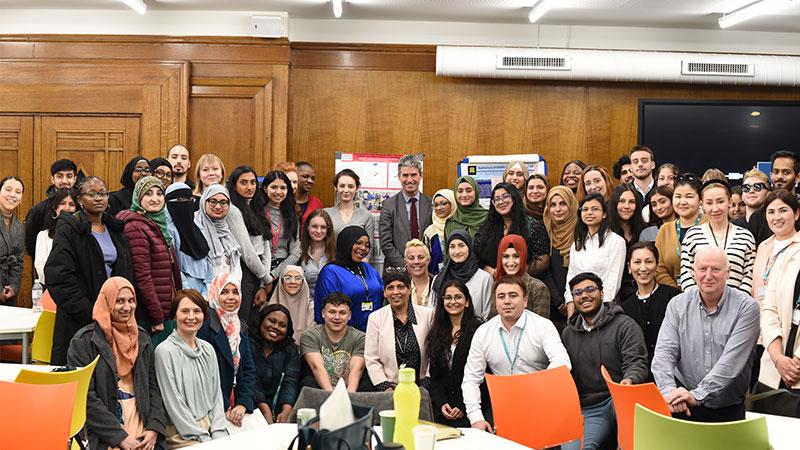The University of Westminster has celebrated students taking part in the Gene Editors of the Future initiative, which gives students from the School of Life Sciences the chance to work with the Nobel Prize-winning technology CRISPR and bridge innovation with curiosity and ambition.

Gene Editors of the Future is a vibrant student community within Westminster and is the longest and largest extracurricular initiative that focuses on the technology CRISPR. The technology can be used to selectively modify the DNA of living organisms and has forever changed the landscape of genetic engineering across organisms.
At the spring celebration event held on the University’s Little Titchfield Street site on 19 April, Munuse Ceyda Savash Ishanzadeh, an alumna of the School of Life Sciences and a PhD student at the University of Oxford, delivered an insightful talk on the use of gene editing in human embryology, shedding light on the impact of CRISPR technology in reproductive medicine.
Around 98 students qualified for the basic certificate in the current iteration and the event celebrated their achievements with a CRISPR/Cas9 basic training in genome engineering certificate. This was followed by the exchange of student feedback in the Gene Editors Whispers session.
There was also a mini-symposium that brought together three mini-project groups, where students had the opportunity to present their posters to peers, researchers and esteemed guests, including Vice-Chancellor and President Professor Peter Bonfield.

In the past three years, the programme has collaborated with over 500 students and has had three distinct phases. Phase one involves fundamentals of CRISPR technology through a virtual journey, laying a solid foundation for future innovations. This is followed by phases two and three which are research extravaganzas, where theory meets practice and students gain invaluable hands-on experience.
About the event Dr Kalpana Surendranath, Leader of the Genome Engineering Laboratory and Senior Lecturer in Molecular Biology and Microbiology at the University of Westminster, said: "The spring event celebrates young talents and their community spirit, showcasing their potential to shape the future of health and humanity."
This initiative directly contributes to the United Nations Sustainable Development Goal (SDG) 4: Quality Education. Since 2019, the University of Westminster has used the SDGs holistically to frame strategic decisions to help students and colleagues fulfil their potential and contribute to a more sustainable, equitable and healthier society.
Find out more about the School of Life Sciences at the University of Westminster.









